Shuttered bars and mandatory masks: What Med destinations will look like this summer
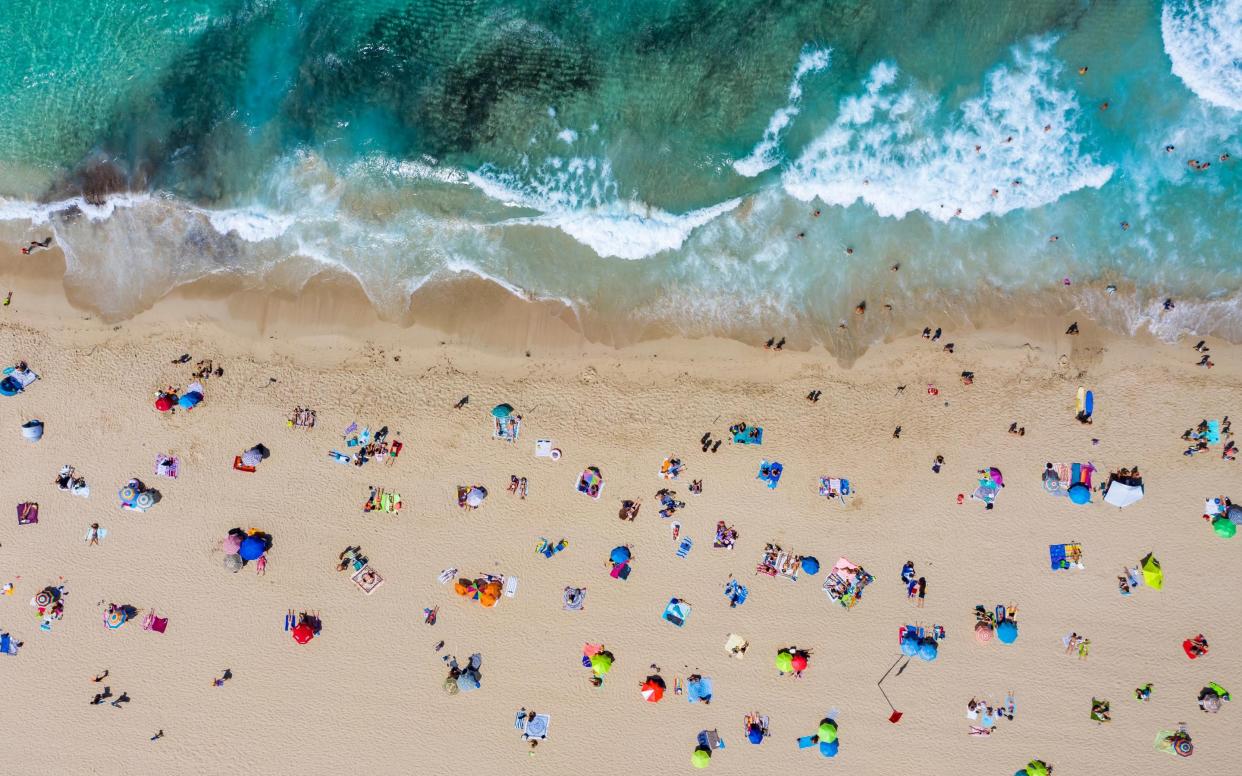
Overseas holidays could be back from May 17, allowing us to return to our favourite haunts – if they’ll have us. Greece and Spain are among the Mediterranean countries making plans to welcome Britons back this summer. The latter has said it will permit entry to both vaccinated visitors and those with a negative Covid test, the former has raised the prospect of a ‘green corridor’ for inoculated UK visitors.
However, the economic impact of a year in which tourism plummeted across the world is evident in places such as the Greek islands, the Algarve and Andalucía, where a growing number of businesses are facing permanent closure and hospitality staff are struggling for work. The loss of visitors in 2020 was equivalent to 4 per cent of GDP in Greece, 2 per cent in Portugal and 1.5 per cent in Spain, Europe, according to economist Jack Allen-Reynolds.
Telegraph Travel’s experts have spoken to those working in the tourism industries in some of our favourite European destinations to find out what Britons can expect to find if overseas holidays resume this summer, from whether their favourite taverna is likely to have gone bust to which Covid rules will still be in place.

Outdoor dining and shuttered bars will remain in Greece
Despite a tough start to 2021, Greek business owners remain positive about the resumption of tourism. They welcomed the recent announcement from tourism minister Harry Theoharis that Greece “will be open to all visitors holding either a negative molecular Covid-19 test or a vaccination certificate.”
The country is slated to open its borders in late spring and hotel owners need Britons to return this year. “Without the British holidaymakers not all properties and destinations in Greece [would] manage to open for business,” says Georgios Kaloutsakis owner of Abaton Island resort & spa in Crete.
Should the UK Government’s roadmap out of lockdown follow the suggested path, then Britons could be back as soon as May 17. Those returning to their favourite islands may see the economic toll of Covid. Greece’s current lockdown has just been extended until March 16 and is likely to be stretched further – possibly until late April – and it’s predicted that as many as one in two bars and restaurants could go out of business. “It’s a really tough time for us – we receive very little in financial aid and we have been closed now for months,” says Maria Papadopoulos, who manages a café near the Cretan town of Malia.
Lingering Covid restrictions – including mandatory mask-wearing – will likely still be in place when hotels open once more. Building on experience gleaned during the rollercoaster 2020 season, hotels and resorts across the country are introducing new measures to ensure guest safety. “We are offering many options for outdoor dining and private dining in case guests do not want to be in contact with other guests,” says Niki Fotiou, marketing director for luxury resort Divani Apollon, on the beach-lined Athens Riviera.
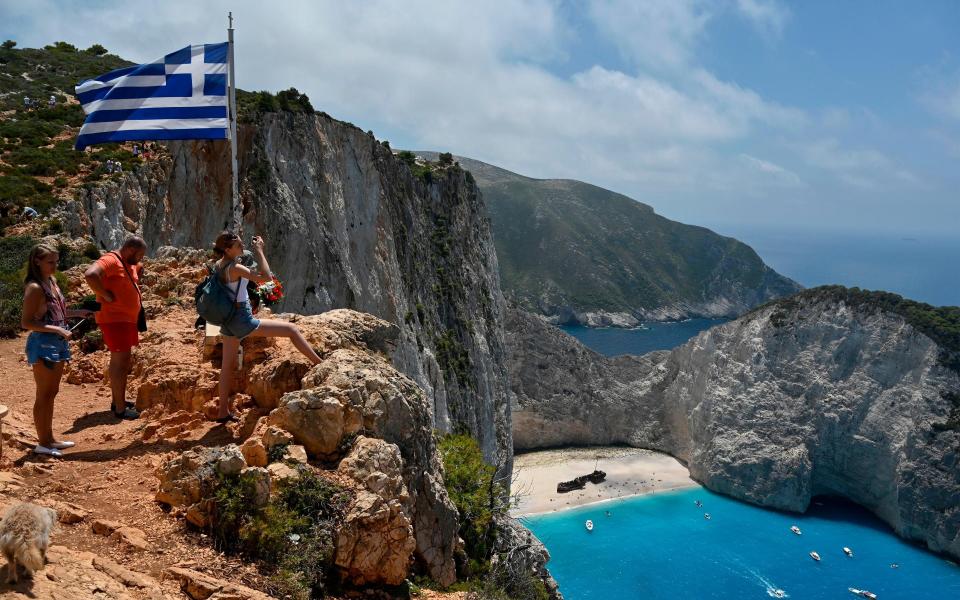
Zakynthos, which is a major destination for sun-starved Britons, was also badly hit last year but Maria Lougari is positive that 2021 will be better. “Our occupancy at the moment for May is approximately 65 per cent, which is very good,” says the owner of Castelli boutique hotel near nightlife hub Laganas.
Markos Chaidemenos, owner of Canaves Oia properties in Santorini, is upbeat, too. “We believe that a significant number of people in Greece will soon be vaccinated and we hope to welcome the first travellers by April,” he says.
Heidi Fuller-Love
Malta retains its charm – and vaccination efforts are going strong
“The UK is Malta’s most important market,” says Alex Incorvaja, former head of the Malta Tourism Authority (MTA) in London and now general manager of the five-star Malta Marriott that opened in January 2020, “another summer like last year would be catastrophic”.
Half a million fewer Britons sunned themselves in this Mediterranean island favourite last year. Without a lifting of restrictions in both countries, Malta could be staring down the barrel of an even more Briton-free summer. The MTA is nonetheless focused on re-opening. Malta’s vaccine roll-out is one of the most advanced in the EU and if the UK reaches its target of all adults receiving at one dose by the summer – or even by September – says MTA UK director, Tolene Van der Merwe, “this may shift the holiday season with more Britons opting for an autumn break”.
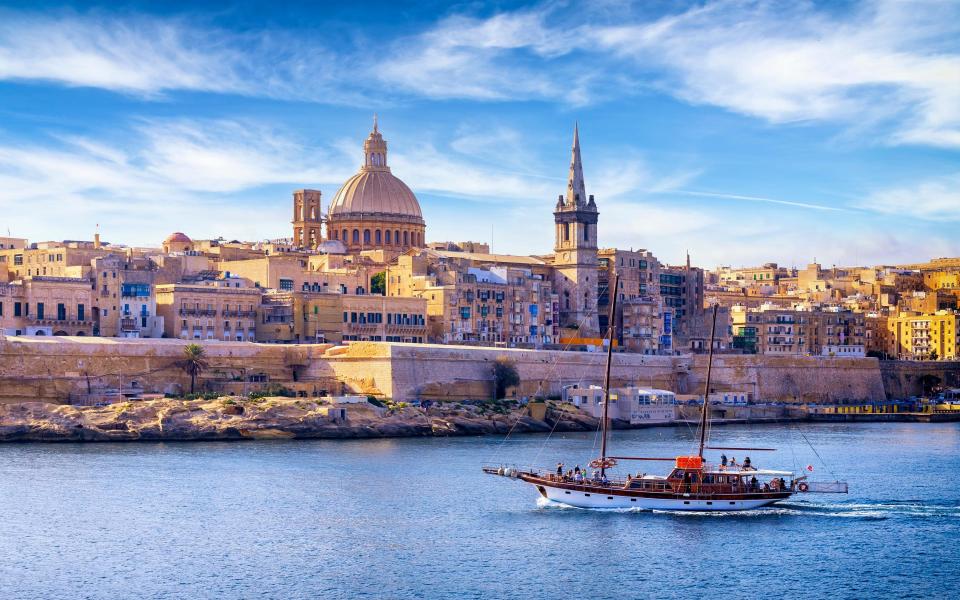
That won’t help some smaller businesses, says Cornil Wambergue of Gozo Adventures, an outdoor activity company which lost 85 per cent of its business last year and is now “on hold”. “I would usually have recruited three or four qualified summer staff in February; I can’t suddenly find them in September”.
Malta controlled the virus well in the first wave before opening up for the 2020 summer season – including mass events. The second wave has been far worse, and although numbers began to fall they now appear to be rising again. Masks are mandatory outside the home but hotels and restaurants are open – with hygiene and distancing measures in place.
It is not all doom and gloom.
One of the joys of Malta is that locals and tourists patronise the same places and, although revenue is down, many businesses are surviving by serving local clientele.
“Government support for the hospitality industry has been solid,” says Tony Zahra, President of the Malta Hotels and Restaurants Association, “Practically all hotels have remained open despite low occupancy and the vast majority of restaurants too. We are not aware of any members that have gone under, though a few have changed their business models”.
If tourists return this year, he says, “the offer will not be much different from before the pandemic”.
Juliet Rix
In the Algarve, fortunes may depend on when Britons return
With current lockdown in Portugal expected to continue, the thinking is to get the country ready and safe for all by summer. A cautious approach is expected, with clear social distancing, restaurants operating at a maximum of 50 per cent capacity, and hotels and beaches following the successful protocols of last summer. Before Britons can return, of course, Portugal must be removed from the travel red list, while Portugal needs to drop its own ban on UK flights.
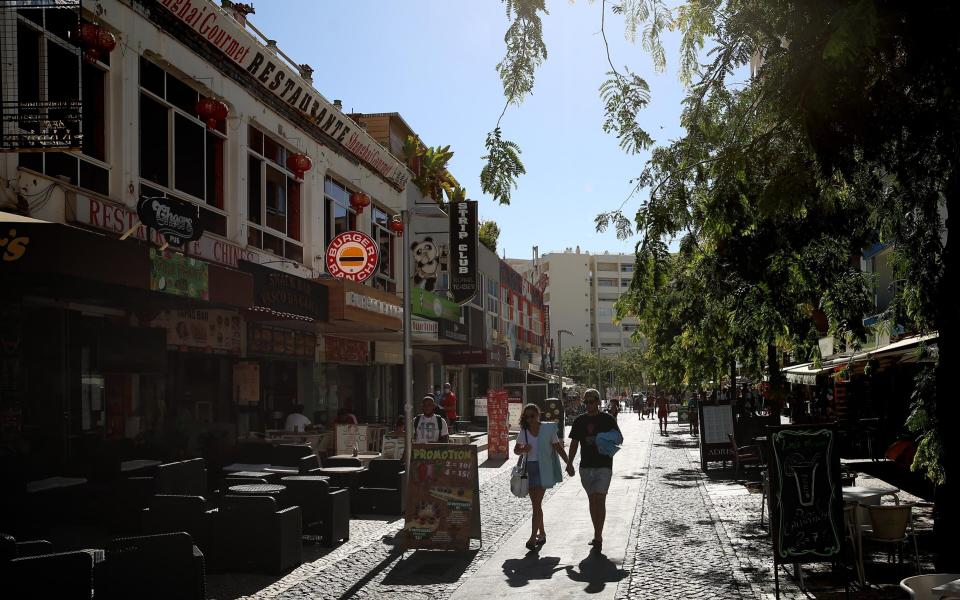
Portugal’s Algarve would seriously struggle without the British market. “In 2019, 50 per cent of the planes that landed in Faro brought British holidaymakers,” Chitra Stern told me as we talked about how the future looked in the Algarve outpost of her child-friendly hotel group, Martinhal. “Now, British holidaymakers are only booking refundable rates from August onwards. Everyone is hedging their bets, but the uncertainty of the market makes it so hard for us to manage staff, many of whom are desperately in need of work after a difficult winter.”
Fifty per cent was the figure that José Avillez, Portugal’s leading chef gave me as to the percentage of restaurants that could close down in Lisbon if it has a bad summer. “On the day that Britain removed Portugal from its travel corridor,” he told me, “Belcanto had over 200 cancellations”.
Two-Michelin-star Belcanto has so far survived the pandemic but Avillez has had to close six of the 12 restaurants that he has dotted across the cobbled streets of Lisbon.
British couple Miles and Gail Curley, who have brought an immaculately restored, perfectly pink, 18th-century palace to the Lisbon hotel market have been holding fire since the pandemic. They plan to open just ten rooms of the 28 they have, and to offer Covid-19 tests to their guests to ensure they can relax in the knowledge that they are safe.
Meanwhile, bookings are rolling in, particularly for October. As Portugal’s lockdown continues, hopes are high that by late spring tourists will arrive and by summer the much-wanted British.
It is not even the lack of money that the many stuck at home find the worst; it is being unable to work. As Chitra Stern put it: “These people have chosen the hospitality career because they love looking after others, without that and faced with empty or closed restaurants and hotels, depression can set in.”
Mary Lussiana
The Balearics may be the first Spanish region to host Britons this summer
In 2020, Spain suffered its worst tourism year since 1969, welcoming only 18.9 million international visitors compared to a record-breaking 83.5 million in 2019. Typically, tourism accounts for over 12 per cent of Spain’s GDP; this dropped to around 4 per cent.
But there is hope that Covid-19 vaccine rollouts in Spain and the UK, combined with some form of vaccine passports, pre-travel testing and/or a ‘green corridor’, will begin reviving the industry this summer. Around 40 per cent of Spain’s population is expected to be vaccinated by the summer, and 70 per cent by the end of August.
In Andalucía, around 12,000 small businesses have disappeared due to the pandemic. To help the sector revive, the regional government is offering free Covid-19 insurance for all non-resident tourists throughout 2021. Alberto Muñoz, general manager at Marbella’s Puente Romano, says the resort is starting to see a rise in British bookings from May 2021: “Provided the lockdowns and travel restrictions in the UK de-escalate, we are positive British guests will return.”
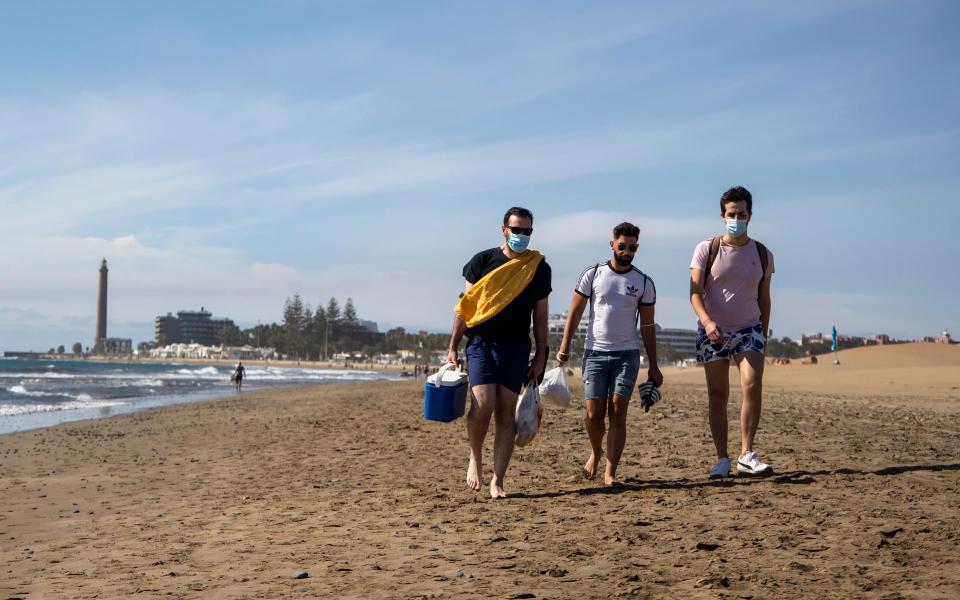
Over in the Balearic Islands, British visitor numbers dropped by 93 per cent in 2020. Now, the Balearics has proposed to the central government to be the first Spanish region to trial vaccine passports. Nacho Gozalbo, commercial director of the Palladium Hotel Group (which employs 1500 people here), says: “The UK market [usually] accounts for up to 70 per cent of bookings to our properties in the archipelago [...] Having said that, we know there is an appetite for travel. We expect late bookings will help drive strong numbers this summer.”
While trips to Spain might look a little different this year – mask-wearing, caps on restaurant numbers, potential regional restrictions, fewer touristy bars – everyone in Spanish tourism is working incredibly hard to welcome back international visitors.
Isabella Noble


